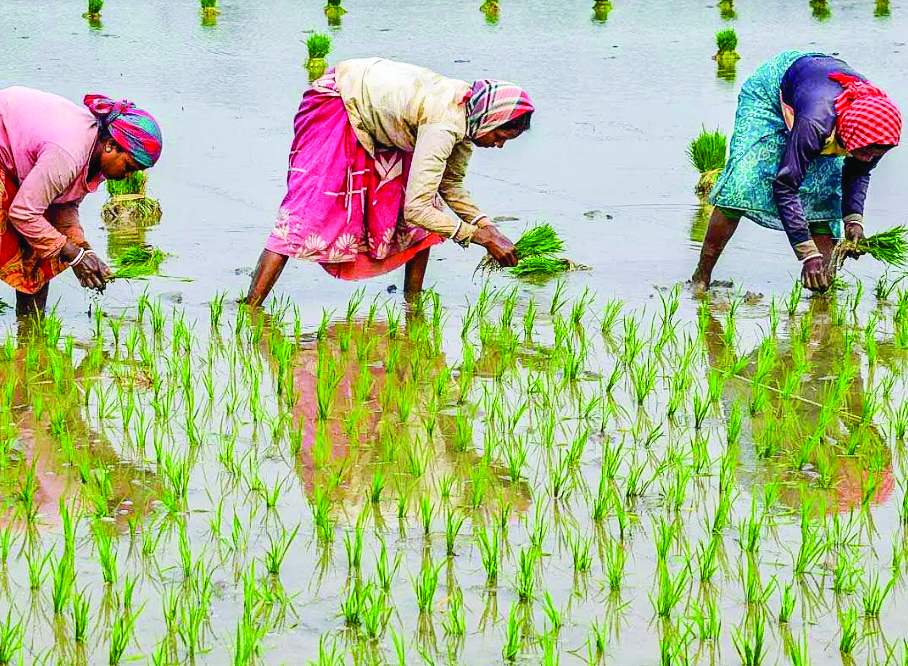India’s agricultural sector is set for a promising season, with the Ministry of Agriculture reporting a substantial increase in the area under kharif crops. This surge is expected to lead to a bumper harvest, bolstering food security and supporting the rural economy at a crucial time.
According to the latest data, the total area sown with kharif crops has expanded to 1,031.56 lakh hectares, a notable rise of 21.04 lakh hectares compared to the previous year’s 1,010.52 lakh hectares. This growth is led by a significant increase in paddy cultivation, which has surged to 369.05 lakh hectares from 349.49 lakh hectares last year—a nearly 20 lakh hectare jump that signals a potentially substantial boost in rice production.
The area under pulses has also witnessed a substantial increase, climbing to 120.18 lakh hectares from 113.69 lakh hectares in the previous year, reflecting a gain of nearly seven lakh hectares. Similarly, oilseeds have shown growth, with the area rising slightly to 186.77 lakh hectares from 185.13 lakh hectares last year. Groundnut cultivation, in particular, has seen a noteworthy increase, reaching 46.36 lakh hectares compared to 42.61 lakh hectares previously.
While soybean cultivation remains steady at 125 lakh hectares, a slight decline in cotton area has been noted. The area under cotton has decreased by 11 lakh hectares, dropping to 111.07 lakh hectares from 122.15 lakh hectares last year. Despite this reduction, the overall gains in other key crops have kept the agricultural outlook positive.
The Ministry of Agriculture remains optimistic about the upcoming Kharif season, emphasizing the substantial overall gains in rice, pulses, oilseeds, and other crucial crops. These developments are expected to significantly enhance food security and support the agricultural economy at a time when the country is keenly focused on boosting its agricultural output.
The positive trends in Kharif sowing are a reflection of the government’s ongoing commitment to strengthening the agricultural sector. In the previous fiscal year (FY23), total food grains production reached 329.7 million tonnes, marking an increase of 14.1 million tonnes compared to the previous year. This growth is part of a broader trend, with the average annual food grain production rising to 289 million tonnes in FY15 to FY23, up from 233 million tonnes between FY05 and FY14. During the previous years record increases have been noted across rice, wheat, pulses, and oilseeds, further solidifying India’s global standing as the largest producer of milk, pulses, and spices worldwide.









